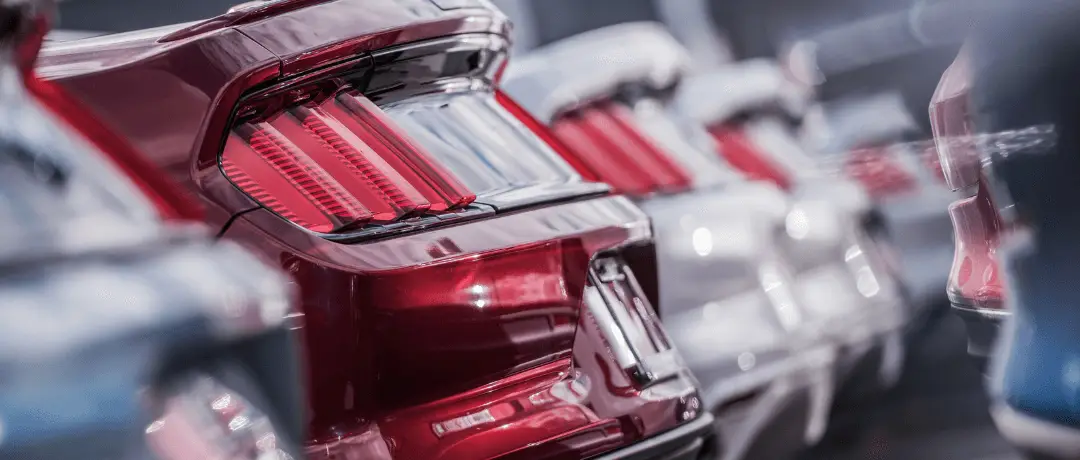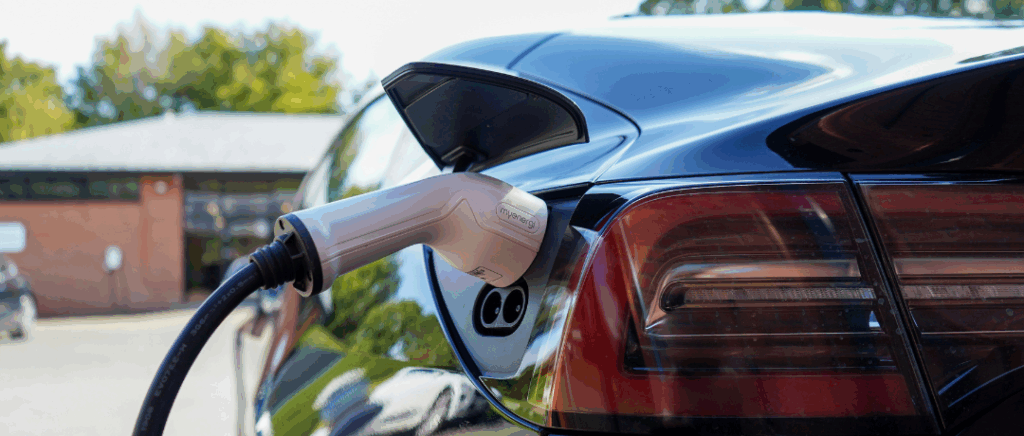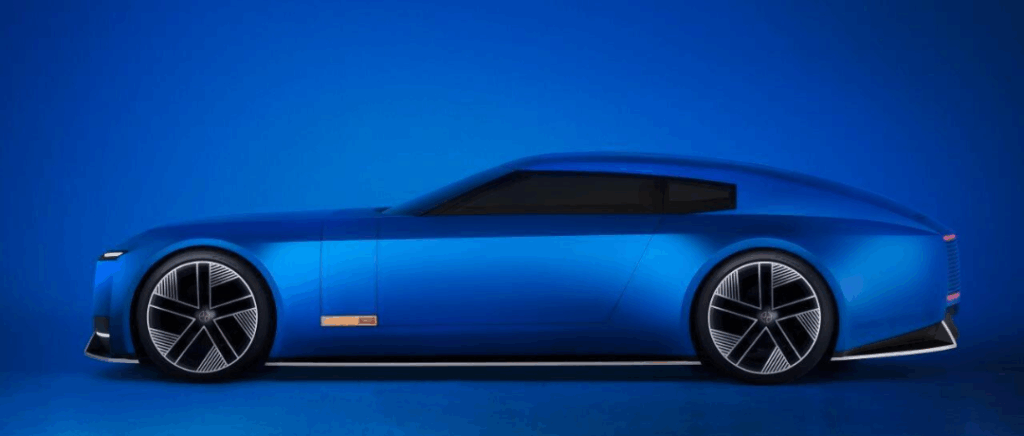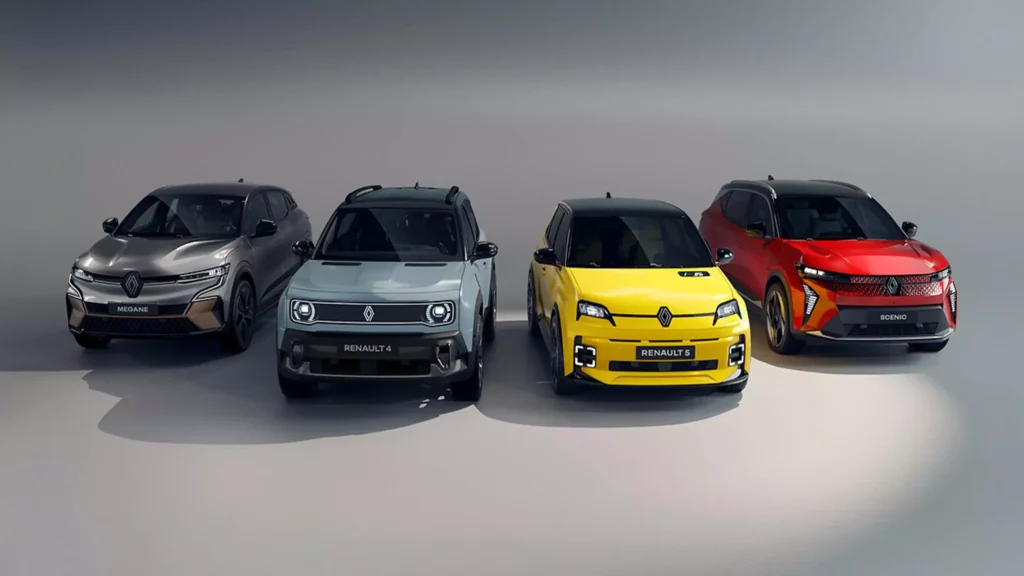Monday to Friday
9am - 12.30pm - 2pm - 7pm
The tax advantages of electric cars for liberals
If you want to make savings as a self-employed professional, it's vital to be informed about all the measures and benefits available to you. tax conditions relating to the acquisition of a electric carWhether for professional or personal use.
Read also : Taxation of electric cars in the workplace: the essential guide
Ecological bonus
-
The ecological bonus was further modified in 2025, following the decree of 29 November 2024, which came into force on 2 December 2024:
Revision of the scale for private individuals: The amount of the eco-bonus is now determined according to three brackets of reference tax income per unit (RFR/P)12:
-
4,000 for an RFR/P less than or equal to €16,300
-
3,000 for an RFR/P between €16,301 and €26,200
-
2,000 for an RFR/P of more than €26,200
Abolition of the bonus for professionals : The ecological bonus is now only available to private individuals. Professionals, including commercial vehicles, are no longer eligible for this aid..
Eligibility conditions maintained : The bonus will continue to apply to vehicles with a purchase price of up to €47,000 and a mass of less than 2.4 tonnes..
Continuation of the environmental score : The minimum environmental score system introduced in 2024 is being maintained, with an updated list of eligible vehicles published by decree..
Abolition of other aid The conversion premium has been abolished for all categories of vehicle, including bicycles..
Allocated budget: A budget of 700 million euros has been allocated to the ecological bonus for 2025..These changes represent a significant reduction in the amounts of aid compared with previous years, reflecting the government's desire to reduce expenditure while maintaining targeted support for the acquisition of electric vehicles.
-
Read also → Ecological bonus 2025: Everything you need to know
Comparative table of the 2024 vs 2025 ecological bonus
| Criteria | 2024 Bonus | Bonus 2025 |
|---|---|---|
| Maximum amount | 7 000 € | 4 000 € |
| Income brackets | 2 slices | 3 slices |
| Amount for RTS/unit > €26,200 | 4 000 € | 2 000 € |
| Amount for RTS/unit between €16,301 and €26,200 | 4 000 € | 3 000 € |
| Amount for RTS/unit ≤ €16,300 | 7 000 € | 4 000 € |
| Commercial vehicles | Eligible | Not eligible |
| Quadricycles, motorbikes, scooters, bicycles | Eligible | Not eligible |
| Minimum environmental score | 60/100 | 60/80 |
| Allocated budget | 1.5 billion | 700 million |
| Conversion premium | Available at | Deleted |
The conversion premium
The conversion premium, a government subsidy that encouraged the replacement of polluting vehicles with cleaner models, has been abolished from 2 December 2024.. This decision is part of the budgetary restrictions in the 2025 Budget Bill and reflects a shift in government strategy towards other schemes such as the ecological bonus and social leasing..
Before it was abolished, the conversion bonus could have been as much as €5,000 for motorists replacing their car with a new one. thermal vehicle The "polluting" model replaced by a "clean" electric model. It was particularly beneficial for low-income households, offering up to €2,500 in 2025, and could be combined with the ecological bonus..
A transitional period has been introduced for new vehicles ordered up to 1 December 2024, provided that invoicing or payment of the first lease instalment takes place no later than 14 February 2025..
The abolition of this aid could have a major impact on the car market and the ecological transition in France, particularly by making it more difficult for people on a limited budget to buy less polluting vehicles..
The total budget for subsidies for the purchase of electric cars has been reduced from €1.5 billion in 2024 to €1 billion in 2025, reflecting this reorientation of policies to support clean mobility.
Deductible electric car expenses for self-employed professionals
Self-employed professionals can deduct expenses relating to the purchase of an electric car directly from their taxable professional income.
As a self-employed professional, you can deduct a number of tax charges for the purchase of an electric car as part of your business activities.
If you are a self-employed professional, acquiring your electric vehicle as a business asset will enable you to deduct a certain number of tax credits. purchase and maintenance costs of your vehicle.
In which case, if you decide to register your electric vehicle as a private asset, the arrangements for deducting expenses will vary.
As far as private assets are concerned, expenses relating to the ownership of your vehicle will no longer be deductible. In addition, only user fees of your electric car, i.e. the expenses relating to the recharge or themaintenance and repair of your electric vehicle.
We'll now look at all the deductible expenses for your business electric vehicle.
The first thing to do is to decide which deduction method you want for your vehicle.
You have the choice of basing your costs on mileage allowances or actual costs for your electric business vehicle.
We will look at the terms and conditions relating to each of these two methods of deduction.
Kilometric allowances in 2025
The first type of deduction will apply to mileage allowances.
Published annually by the tax authorities, the fixed mileage rate is a scale based on the tax rating of the vehicle and the number of kilometres travelled each year in the course of business.
If you use this deduction method for your vehicle, you will be able to claim a significant deduction for the expenses incurred in purchasing your electric car and for the costs of owning the vehicle.
The mileage allowance will therefore enable you to cover the following costs:
- Depreciation (as owner) or rent (as tenant)
- Hire the battery
- Regular maintenance and repairs
- Electricity for recharging
- Tyres
- Insurance
As a result, opting for the scale based on mileage allowances is often the most tax-efficient solution for self-employed professionals.
Actual costs
However, if you do not wish to deduct your expenses on the basis of the mileage allowance, you can also opt to deduct actual expenses. In this case, this method of deduction works in the same way as for all other expenses. You will need to keep all the invoices to justify your actual costs, for each expense incurred. However, the complexity of actual costs arises if you plan to use your electric vehicle for both business and private purposes.
In such a situation, it quickly becomes tedious to separate business expenses from personal expenses. As a professional, it is often wiser to opt for the deduction method based on the mileage scale.
The VAT paid on the purchase of your electric car is still not deductible from your business expenses and is therefore not recoverable. On the other hand, the VAT applied to your electricity consumption is fully deductible, up to 100%, unlike diesel or petrol, which is 80%.
The tax changes for 2025 include further simplification of administrative procedures for self-employed professionals, with a particular focus on digitising tax returns and reducing social security contributions. These developments continue to show a trend towards simplifying and lightening taxation for self-employed professionals, thereby facilitating their administrative and financial management.
In 2025, the kilometre rate for electric cars will be as follows (increased by 20% compared with combustion vehicles):
2025 kilometre rate for electric cars
| Administrative power | From 0 to 5,000 km | From 5,001 to 20,000 km | > 20,000 km |
|---|---|---|---|
| 3 CV and less | d * 0.535 * 1.20 | (d * 0.320) + 1080 * 1.20 | d * 0.375 * 1.20 |
| 4 CV | d * 0.612 * 1.20 | (d * 0.345) + 1350 * 1.20 | d * 0.413 * 1.20 |
| 5 CV | d * 0.643 * 1.20 | (d * 0.363) + 1415 * 1.20 | d * 0.433 * 1.20 |
| 6 CV | d * 0.672 * 1.20 | (d * 0.380) + 1477 * 1.20 | d * 0.453 * 1.20 |
| 7 CV and more | d * 0.704 * 1.20 | (d * 0.400) + 1535 * 1.20 | d * 0.476 * 1.20 |
Depreciation of your electric vehicle
Choosing an electric car as a business vehicle means significant savings on depreciation compared with combustion vehicles.
As a self-employed professional, the depreciation of your business electric car results in a tax deduction, reducing your rate of tax.
In 2025, for zero-emission cars (or cars with CO2 emissions of less than 20g/km), a depreciation allowance of €30,000 will be granted on the vehicle and its battery. This ceiling also applies to healthcare professionals (nurses, doctors, etc.) using an electric vehicle in the course of their duties.
The purchase of an electric car offers an advantageous depreciation ceiling for self-employed professionals.
The depreciation period for an electric vehicle varies between 4 and 5 years, depending on the use and conditions of the vehicle.
The car and its electric battery are depreciated separately, as the battery is not included in the calculation of the vehicle's depreciation rate. Its value, defined according to its power, is depreciated separately, with no ceiling.
If you choose to lease, long-term leasing (LLD) is an advantageous option. It allows you to deduct the costs of leasing and maintaining the vehicle.
For professional use over several years, long-term leasing is a particularly good way of maximising depreciation and reducing tax.
Leasing your electric car allows you to maximise depreciation and therefore reduce your tax bill.
Other deductible expenses
In addition, other costs relating to the acquisition and use of the electric car are tax-deductible for self-employed professionals.
We have listed them below:
- Interest on the car loan :
As a self-employed professional, the interest on the loan to buy an electric car is deductible from your taxable professional income.
This means that the interest paid on your loan for the purchase of your electric car can be deducted from your business income tax. - Maintenance and repair costs (corresponding to all the costs associated with maintaining and repairing your vehicle, such as the cost of spare parts, labour and maintenance-related services).
- Insurance costs :
This includes compulsory third-party liability insurance, as well as any additional insurance chosen to cover the risks associated with using the vehicle, such as fire or collision insurance. Insurance costs are a type of expense that will also be deductible from your taxable business income. - Electric car recharging costs :
If you charge your electric vehicle at home, you can deduct the cost of electricity consumption.
If you recharge at a public charging point, you will not need to deduct any costs. All you need to do is keep the invoices showing your recharge costs for accounting purposes.
Are you looking for the right electric vehicle for your needs as a self-employed professional? If you're still not sure which electrified model is best suited to your use and your professional activity, don't hesitate to consult our article on the best 100% electric cars for the self-employed.
Read also : 6 electric cars for the self-employed
In conclusion
As we have seen, the purchase of an electric car as part of your professional activity can lead to significant tax optimisation, particularly in terms of deductible vehicle expenses.
Enough to convince you to opt for an electrified model as a professional vehicle.
For more information, we've put together a guide to this topic to explore the different aspects in depth:
Read our article about :
If so, and you're thinking of buying or leasing an electric vehicle, don't hesitate to get in touch with our Beev experts, who will be able to answer your questions and guide you through your project.

































